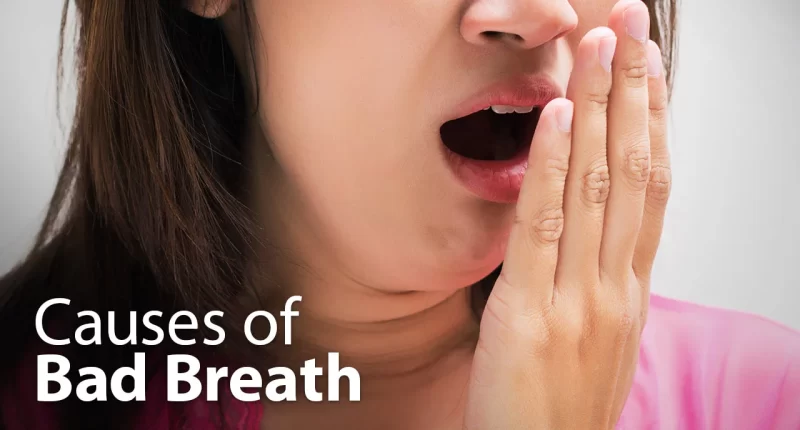What causes bad breath generally? Have you ever been close to someone and caught a whiff of their bad breath? It’s not a pleasant experience, and it can be pretty embarrassing for the person with the bad breath. But what causes bad breath, and how can you prevent it? In this blog post, we will explore the causes of bad breath and how to prevent it. From food choices to oral hygiene, there are a number of things that can cause bad breath. But don’t worry, there are also a number of things you can do to prevent it!
What is bad breath?
Bad breath is often caused by poor oral hygiene. Brushing and flossing your teeth regularly can help to remove the build-up of plaque and bacteria that can cause bad breath. If you have persistent bad breath, it could be a sign of a more serious underlying medical condition. Gastroesophageal reflux disease (GERD), for example, can cause bad breath due to stomach acids backing up into the throat. untreated cavities, gum disease, and certain respiratory tract infections can also cause bad breath.
The causes of bad breath
There are many different causes of bad breath, and the severity of the problem can vary from person to person. Some of the most common causes of bad breath include:
- Food: Eating certain types of food can cause bad breath. For example, garlic and onion are two common culprits.
- Smoking: Smoking is a major cause of bad breath. Not only does it leave an unpleasant smell in your mouth, but it also dries out your mouth and decreases saliva production.
- Dry mouth: A dry mouth can be caused by a number of things, including medication side effects, salivary gland disorders, or simply not drinking enough water. When your mouth is dry, there is less saliva to wash away food particles and bacteria, which can lead to bad breath.
- Medical conditions: Certain medical conditions can cause bad breath. For example, gum disease, sinus infections, bronchitis, and diabetes can all lead to an increase in foul-smelling breathed.
If you are concerned about bad breath, talk to your doctor or dentist. They will be able to help determine the cause of the problem and recommend treatment options.
How to prevent bad breath
The leading cause of halitosis, or bad breath, is poor oral hygiene. Bacteria that build up on the teeth and tongue can cause an unpleasant smell. Other causes of bad breath include food, tobacco products, certain medical conditions, and dry mouth.
Good oral hygiene is the best way to prevent bad breath. Be sure to brush your teeth at least twice a day and floss daily. tongue scrapers can also help remove bacteria from the tongue. In addition, be sure to stay hydrated by drinking plenty of water throughout the day. saliva helps keep the mouth clean and prevents bacteria from building up.
If you smoke tobacco products, quitting is the best way to eliminate bad breath. If you are unable to quit, be sure to brush your teeth and rinse your mouth after smoking. Food can also cause bad breath, so be sure to brush your teeth after eating strong-smelling foods such as garlic or onions.
Certain medical conditions such as diabetes and acid reflux can also cause bad breath. If you have a medical condition that causes bad breath, talk to your doctor about treatment options. Dry mouth can also lead to bad breath because there is not enough saliva in the mouth to keep it clean. Sipping water throughout the day can help increase saliva production. Chewing sugar-free gum or sucking on sugar-free hard candy can also help increase saliva flow
Bad breath treatments
There are many potential causes of bad breath, and therefore many potential treatments. Some common causes of bad breath include eating strong-smelling foods, smoking, gum disease, dry mouth, and sinus infections.
To treat bad breath caused by eating strong-smelling foods, simply brush your teeth and tongue after eating. To treat bad breath caused by smoking, try quitting smoking or using a mouthwash designed for smokers. Gum disease can be treated with regular brushing and flossing, as well as by seeing a dentist for professional cleanings. Dry mouth can be treated by drinking more water and sucking on sugar-free candy. Sinus infections can be treated with over-the-counter medication or by seeing a doctor.
Conclusion
There are many different causes of bad breath, but some of the most common include poor dental hygiene, eating certain foods, and smoking cigarettes. If you’re concerned about your breath, make sure to brush and floss regularly, avoid strong-smelling foods, and quit smoking if possible. With a little effort, you can achieve fresher breath in no time!
READ NEXT: Carissa Culiner Bio, Net Worth & 10 Things You Don’t Know About Her











